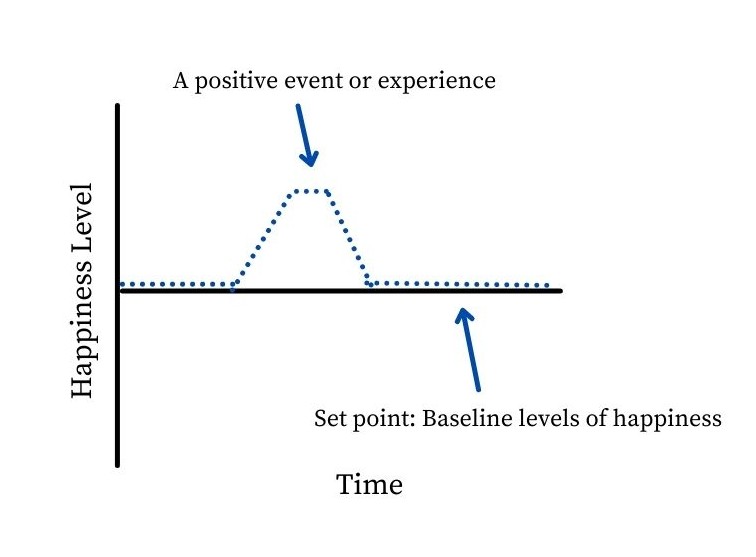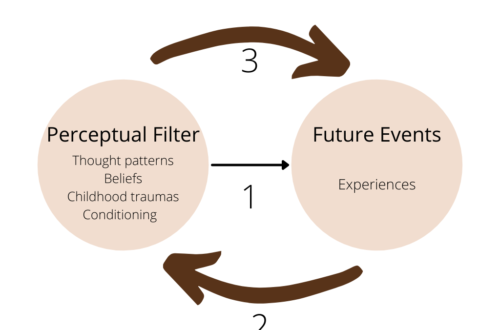3 Reasons Why Pursuing Happiness is Useless
“Happiness cannot be travelled to, owned, earned, worn or consumed. Happiness is the spiritual experience of living every moment with love, grace, and gratitude.”
Denis Waitley (1933)
Happiness is not a destination. I think we must have heard this many times but what does it mean? Today the science shows us that the act of explicitly pursuing happiness is self-defeating. It seems that the wisdom of the past is indeed true. Happiness is not something that can be attained. But why is trying to be happier, not useful?
Let’s take a look at a few reasons why explicitly trying to be happier is not helpful.
#1. What is happiness exactly?
One of the reasons why pursuing happiness may be a waste of time is because happiness is such a vague term. Think about it. What do we actually mean when we say “I want to be happy.” What do you actually want to feel?
Do you want to be more satisfied with your life overall?
Do you want to experience more fun? Joy?
Do you want more meaning in your life?
Do you want more money, love, or more positive experiences?
Do you see what I mean? Happiness is different things to different people. This is why when we say I want to be happier and try to be happier, it is almost always futile because we are not actually clear about what we want. This is why in science we use the term well-being which is better defined than the term happiness. Well-being is a broader term encompassing happiness. It is a value that refers to functioning well in life and feeling good.
However, suppose you do know what you mean by the term happiness and try to pursue it. Sometimes, you may not be accurate about what you think might bring you happiness. For example, suppose you think that earning more money will make you happy. After you earn more money, you may not actually be as happy as you thought you would be. This might be because you don’t actually know what makes you happy.
#2. Introspection kills happiness.
You may often introspect about how happy you are when you think you are doing something that will make you happy. The problem with this act of introspection is that it can make one unhappy due to two possible reasons. One is that the act of introspecting might take attention away from the actual activity itself which is supposed to make you happy.
When this attention is taken away, you may miss some subtle positive aspects of the experience. For example, suppose you are hanging out with your friends and you constantly keep checking to see if you are happier. You may not feel any happier because the act of checking to see if you’re happy takes attention away from the positive experience you are having with your friends.
Another reason is that as you introspect, you may compare your actual experience to what you might think the experience should feel like. These comparisons can make you feel worse. There is also some scientific evidence for this theory. Researchers found that those who were happy overall tended to introspect less while unhappy people had higher levels of self-consciousness and self-focused attention.
However, this evidence should be taken with a grain of salt as it is correlational. Although, this does not mean that one should never introspect. Introspection has many positive benefits however, the evidence does suggest that introspecting with the explicit goal in mind of trying to be happier may not be useful. However, introspecting for other reasons such as increasing one’s level of self-awareness may be helpful. Learn how to introspect and increase your awareness.
#3. Hedonic adaptation
Another reason why trying to be happier is futile is because we overestimate what will make us happy. For example, many people overestimate the happiness money or other materialistic goods will bring. However, when you actually get that which you wanted, you’re not as happy as you thought you would be. Think back to a time in your life when you got something you really wanted, ideally something materialistic. How long did that happiness last? I know for me, when I get something I want, happiness only lasts for a few seconds before it fades away.
This occurs because as humans we adapt to many circumstances. There is a theory in psychology known as the hedonic treadmill theory which suggests that we completely and rapidly adapt to all circumstances. While this theory is not completely true, there is some truth to it. It is true that we as humans often adapt to many of life’s circumstances. We especially adapt to obtaining materialistic items. Ever wonder why those new AirPods or that new car no longer bring the same excitement or joy as they use to? It’s because we adapt. We quickly go back to our baseline levels of happiness.

Conclusion
Okay so after all these reasons, it seems like trying to be happy is a waste of time. So are you doomed forever? Will you never be happy? Of course not! You can be happy! However, explicitly trying to be happy with the goal of being happy may be futile but, happiness can be attained indirectly.
For example, by pursuing goals, we can indirectly be happy. The active process of pursuing goals or achieving goals bring us happiness and joy. This is demonstrated by the self-concordance model which suggests that pursuing goals that are personally relevant to us can lead us to put in a sustained effort or continuous effort. This makes it more likely that we will achieve our goals. Achieving our personally relevant goals can lead to satisfying some of our needs in life such as meaning, mastery, or competence. Meeting our needs can lead to increased well-being or happiness.

In addition to goals, there are certain activities that can be performed to boost your happiness such as practicing gratitude and more.
Perhaps happiness isn’t something to be attained or pursued but rather experienced. A better way to experience happiness is to immerse yourself in an activity and experience flow. Flow is positively correlated to well-being. Maybe, it’s time to shift your attention from your mind to the life around you. Perhaps happiness isn’t to be pursued because it’s meant to be found, in the now.
References
Schooler, J., Ariely, D., & Loewenstein, G. (2003). The explicit pursuit and assessment of happiness can be self-defeating (study 1). The Psychology of Economic Decisions: Rationality and Well-being. Vol. 1. 41-72.
Sheldon, K. M., & Elliot, A. J. (1999). Goal striving, need satisfaction, and longitudinal well-being: The self-concordance model. Journal of Personality and Social Psychology, 76(3), 482–497. https://doi.org/10.1037/0022-3514.76.3.482



3 Comments
Buster
I’d like to thank you for the efforts you have put in writing this blog.
I am hoping to see the same high-grade content from you later on as well.
In truth, your creative writing abilities has inspired me to get my very own site now ;
)
Roxanna
Hello, i think that i saw you visited my weblog so i came to “return the favor”.I am attempting to find things to improve my
website!I suppose its ok to use a few of your ideas!!
Pingback: